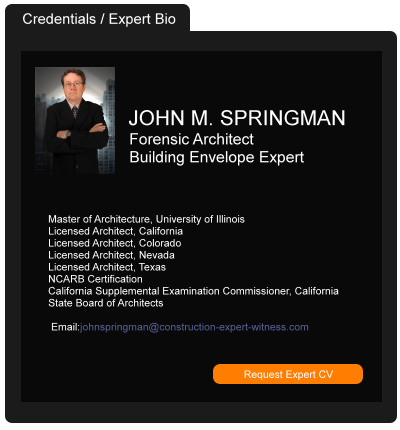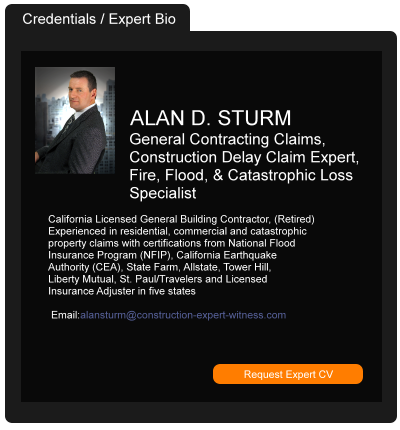Connecticut Builders Right To Repair Current Law Summary:
Current Law Summary: Case law precedent
Building Expert Contractors Licensing
Guidelines Fairfield Connecticut
License required for electrical and plumbing trades. No state license for general contracting, however, must register with the State.
Association Directory
Local # 0780
433 Meadow St
Fairfield, CT 06824
http://www.buildfairfieldcounty.com
Fairfield Connecticut Building Expert 10/ 10
Builders Association of Eastern Connecticut
Local # 0740
20 Hartford Rd Suite 18
Salem, CT 06420
http://www.baec.net
Fairfield Connecticut Building Expert 10/ 10
Home Builders Association of New Haven Co
Local # 0720
2189 Silas Deane Highway
Rocky Hill, CT 06067
http://www.hbanewhaven.com
Fairfield Connecticut Building Expert 10/ 10
Home Builders Association of Hartford Cty Inc
Local # 0755
2189 Silas Deane Hwy
Rocky Hill, CT 06067
http://www.hbahartford.com
Fairfield Connecticut Building Expert 10/ 10
Home Builders Association of NW Connecticut
Local # 0710
110 Brook St
Torrington, CT 06790
http://www.hbanwct.org
Fairfield Connecticut Building Expert 10/ 10
Home Builders Association of Connecticut (State)
Local # 0700
3 Regency Dr Ste 204
Bloomfield, CT 06002
http://www.hbact.org
Fairfield Connecticut Building Expert 10/ 10
Building Expert News and Information
For Fairfield Connecticut
#11 CDJ Topic: Cortez Blu Community Association, Inc. v. K. Hovnanian at Cortez Hill, LLC, et al.
Steven Cvitanovic to Present at NASBP Virtual Seminar
Construction Law Client Alert: California’s Right to Repair Act (SB 800) Takes Another Hit, Then Fights Back
BHA has a Nice Swing: Firm Supports CDCCF Charity at 2014 WCC Seminar
Congratulations to Haight’s 2019 Northern California Super Lawyers
No Signature, No Problem: Texas Court Holds Contractual Subrogation Waiver Still Enforceable
Digitalizing the Construction Site – Interview with Tenderfield’s Jason Kamha
Disappearing Data: Avoid Losing Electronic Information to Avoid Losing the Case
A Compilation of Quirky Insurance Claims
Appeals Court Finds Manuscript Additional Insured Endorsements Ambiguous Regarding Completed Operations Coverage for Additional Insured
North Dakota Supreme Court Clarifies Breadth of Contractual Liability Coverage
Federal Court of Appeals Signals an End to Project Labor Agreement Requirements Linked to Development Tax Credits
Owners Bound by Arbitration Clause on Roofing Shingles Packaging
Thank You for Seven Years of Election to Super Lawyers
Sweet News for Yum Yum Donuts: Lost Goodwill is Not an All or Nothing Proposition
Be Careful with “Green” Construction
Court Grants Motion to Dismiss Negligence Claim Against Flood Insurer
He Turned Wall Street Offices Into Homes. Now He Vows to Remake New York
Kahana Feld LLP Senior Attorney Rachael Marvin and Partner Dominic Donato Obtain Complete Dismissal of Plaintiff’s Labor Law Claims on Summary Judgment
Dusseldorf Evacuates About 4,000 as World War II Bomb Defused
Faulty Workmanship Causing Damage to Other Property Covered as Construction Defect
Illinois Court Addresses Rip-And-Tear Coverage And Existence Of An “Occurrence” In Defective Product Suit
COVID-19 Vaccine Considerations for Employers in the Construction Industry
Consequential Damages Flowing from Construction Defect Not Covered Under Florida Law
Do Not Lose Your Mechanics Lien Right Through a Subordination Agreement
Kadeejah Kelly Named to The National Black Lawyers’ “Top 40 Under 40” List
Hilti Partners with Canvas, a Construction Robotics Company
Do You Really Want Mandatory Arbitration in Your Construction Contract?
Idaho Construction Executive Found Guilty of Fraud and Tax Evasion
If You Don’t Like the PPP Now, Wait a Few Minutes…Major Changes to PPP Loan Program as Congress Passes Payroll Protection Program Flexibility Act
Designers George Yabu and Glenn Pushelberg Discuss One57’s Ultra-Luxury Park Hyatt
Five Lewis Brisbois Attorneys Named “Top Rank Attorneys” by Nevada Business Magazine
California Supreme Court Holds Insured Entitled to Coverage Under CGL Policy for Negligent Hiring
Last Call: Tokyo Iconic Okura Hotel Meets the Wrecking Ball
Candis Jones Named to Atlanta Magazine’s 2021 “Atlanta 500” List
Drone Operation in a Construction Zone
Paris ‘Locks of Love’ Overload Bridges, Threatening Structures
The “Ugly” Property Next Door is Ruining My Property Value
Improvements to AIA Contracts?
Green Construction Trends Contractors Can Expect in 2019
Couple Perseveres to Build Green
Mandatory Arbitration Provision Upheld in Construction Defect Case
Cal/OSHA-Approved Changes to ETS Will Take Effect May 6, 2022
Court Finds that Subcontractor Lacks Standing to Appeal Summary Judgment Order Simply Because Subcontractor “Might” Lose at Trial Due to Order
Eighth Circuit Rejects Retroactive Application of Construction Defect Legislation
Arizona Court Cites California Courts to Determine Construction Defect Coverage is Time Barred
Precedent-Setting ‘Green’ Apartments in Kansas City
White and Williams Lawyers Recognized by Best Lawyers
Key Amendments to Insurance Claims-Handling Regulations in Puerto Rico
Coverage Article - To Settle or Not To Settle?


































































